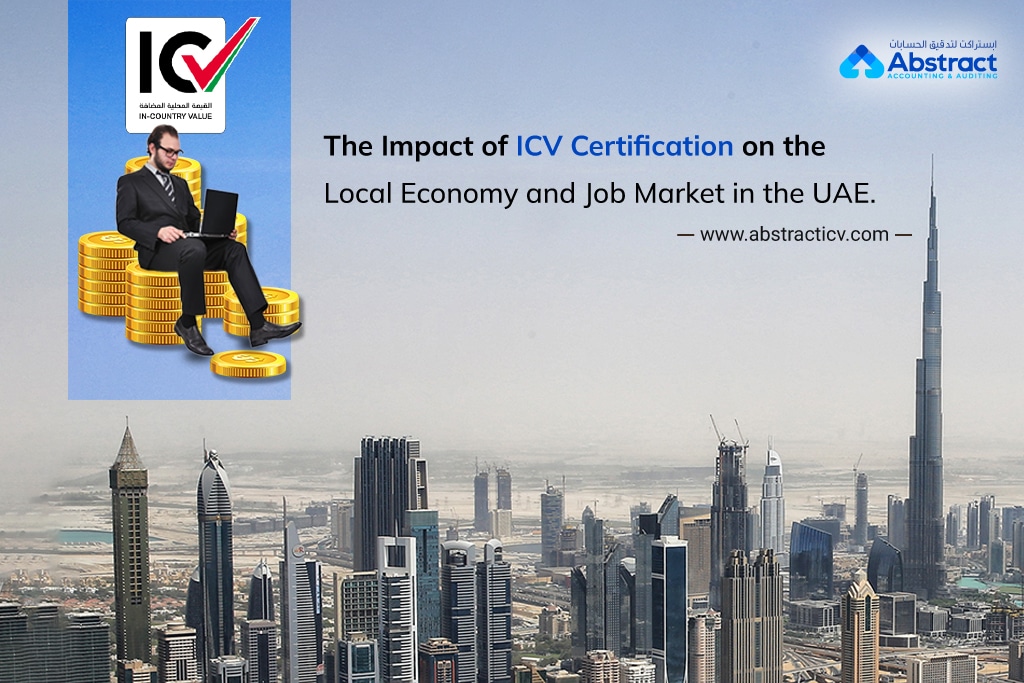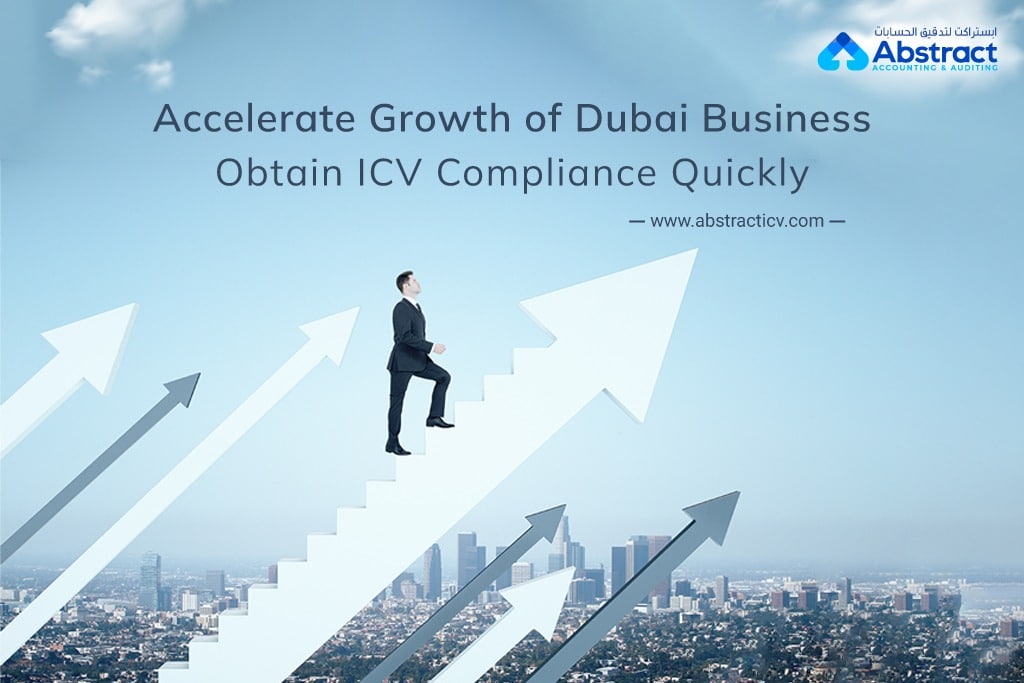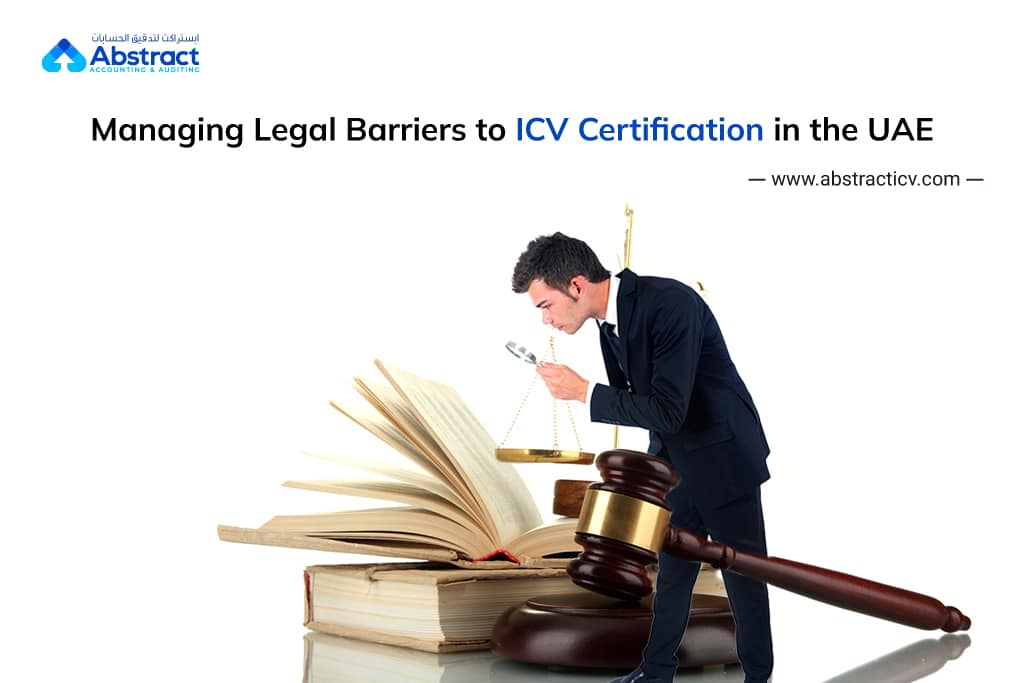The In-Country Value (ICV) program has emerged as a pivotal force in shaping the economic landscape of the United Arab Emirates (UAE). Designed to promote economic diversification, enhance local industries, and boost Emiratization, ICV certification has become increasingly significant for businesses operating in the region.
The ICV program aims to achieve several critical goals:
- Economic Diversification: By encouraging investment in non-oil sectors, the UAE seeks to reduce its dependence on oil revenues and create a more resilient economy.
- Emiratization: The program prioritizes the employment of UAE nationals, fostering a skilled local workforce.
- Sustainable Growth: ICV certification contributes to sustainable economic growth by nurturing local businesses and industries.
The Positive Impact on the Local Economy
The ICV program acts as a catalyst for positive change in the UAE’s economy in several ways:
Increased Investment in Local Resources
Companies striving for ICV compliance need to prioritize sourcing materials, goods, and services from within the UAE. This injects money directly into the local economy, stimulating growth in domestic industries and businesses, especially Small and Medium Enterprises (SMEs).
Growth of Domestic Industries and Services
As the demand for locally sourced goods and services rises, existing domestic companies are incentivized to expand and innovate. This fosters the creation of new businesses catering to the needs of the ICV program, further diversifying the UAE’s economic landscape and reducing reliance on foreign imports.
Reduced Reliance on Foreign Imports
By encouraging local procurement, ICV certification helps the UAE lessen its dependence on imported goods. This keeps more money circulating within the country, boosting the Gross Domestic Product (GDP) and promoting a more self-sufficient economy.
Increased Local Spending
When companies invest in local resources and create jobs, it leads to increased salaries and disposable income for UAE residents. This fuels local spending, stimulates further economic activity across various sectors, and ultimately contributes to a more robust and resilient economy.
The ICV program fosters a domino effect, starting with increased investment in local resources. This strengthens domestic industries and services, leading to a wider range of locally produced goods and services available. In turn, this reduces reliance on foreign imports, keeping more money circulating within the UAE’s economy. The increased economic activity also fuels local spending by residents, creating a positive feedback loop that strengthens the overall economy and fosters a more diversified and self-sustaining economic landscape for the UAE.
Boosting the Job Market with ICV Certification
The ICV program acts as a powerful driver for job creation and development in the UAE’s job market through several key mechanisms:
New Job Opportunities
As companies strive to achieve ICV compliance, they often need to expand their operations and workforce. This creates new job opportunities across various sectors, from manufacturing and logistics to engineering and administration. These jobs cater to both skilled and unskilled labor, offering a wider range of employment possibilities for UAE residents.
Increased Demand for Emirati Workforce
One of the core objectives of the ICV program is “Emiratization,” which aims to increase the number of Emirati citizens employed in the private sector. As companies prioritize local resources, there’s a growing demand for skilled Emirati professionals to fill these positions. This incentivizes investment in vocational training programs and upskilling initiatives to equip Emiratis with the necessary skills to thrive in the job market.
Improved Working Conditions and Wages
With a growing demand for talent due to ICV requirements, competition for skilled workers intensifies. This can lead to improved working conditions and potentially higher wages for employees across various sectors. Companies may offer more competitive benefits packages and invest in employee development to attract and retain top talent.
Focus on Vocational Training
The ICV program highlights the need for a skilled local workforce. This encourages government and private entities to invest in vocational training programs tailored to the specific needs of the ICV program. These programs equip individuals with the technical skills and knowledge required to secure jobs in high-demand sectors arising from the ICV requirements.
In essence, the ICV program creates a dynamic environment where companies need to adapt and expand their workforce. This translates to new job opportunities for both skilled and unskilled workers, with a specific emphasis on Emirati employment. The increased competition for talent also fosters improved working conditions and potentially higher wages. Additionally, the focus on vocational training ensures a skilled workforce ready to meet the demands of the evolving ICV-driven economy.
Challenges and Considerations of ICV Certification
While the ICV program offers significant benefits, there are also some challenges and considerations for businesses to navigate:
- Complexity of the Program: The ICV certification process can be complex, with different requirements for various industries and company structures. Businesses may require guidance from consultants or advisors to ensure they understand and comply with all the regulations.
- Initial Investment Costs: Meeting ICV requirements may involve upfront investments in areas like local sourcing, employee training, or establishing new partnerships. Companies with limited budgets may find these initial costs challenging, especially if the long-term return on investment isn’t immediately apparent.
- Availability of Local Resources: Depending on the specific industry and required goods/services, companies might face limitations in finding qualified local suppliers or skilled Emirati workforce. This can create hurdles in achieving optimal ICV scores.
- Transparency and Consistency: For the program to be truly effective, ensuring transparency and consistent implementation across all government entities is crucial. Businesses may encounter variations in interpretation or application of the ICV regulations depending on the specific department or agency they’re dealing with.
The Future of ICV in the UAE: A Catalyst for Continued Growth
The ICV program has already demonstrably impacted the UAE’s economy and job market. Looking ahead, ICV is poised to play a vital role in the nation’s long-term economic success:
Sustainable Economic Growth: By fostering a more self-sufficient and diversified economy, ICV certification can help the UAE lessen its reliance on volatile oil prices. A focus on local innovation and entrepreneurship can lead to the development of new industries and technologies, further strengthening the UAE’s economic standing on the global stage.
Attracting Foreign Investment: The ICV program demonstrates the UAE’s commitment to developing a robust and sustainable domestic economy. This can attract foreign investors seeking a stable and collaborative business environment. Companies with ICV certification may also find themselves more attractive partners for international collaborations.
Fostering Innovation: As companies strive to meet ICV requirements, they are incentivized to seek innovative solutions for local sourcing, manufacturing, and workforce development. This fosters a culture of innovation within UAE businesses, leading to the development of new technologies and processes that can benefit the entire economy.
Building a Knowledge-Based Economy: The emphasis on Emiratization within the ICV program encourages investment in education and training programs. This helps create a more skilled and knowledgeable workforce, propelling the UAE towards a knowledge-based economy that thrives on innovation and intellectual capital.
Conclusion: Building a Brighter Economic Future for the UAE
The ICV program has emerged as a powerful driver of positive change in the UAE’s economic landscape. By incentivizing investment in local resources, businesses, and talent, ICV certification fosters a more diversified and self-sufficient economy. This translates to a wider range of job opportunities, improved working conditions, and a more robust and resilient economic environment.
Looking ahead, ICV presents a unique opportunity for the UAE to achieve long-term economic success. The program’s focus on sustainability, innovation, and Emiratization paves the way for a knowledge-based economy that thrives on collaboration and intellectual capital. By attracting foreign investment and fostering a culture of innovation, ICV can propel the UAE towards a future of continued growth and prosperity.
However, obtaining ICV certification can be intricate and time-consuming, especially for companies unfamiliar with the program. Therefore, it is highly recommended that companies aspiring to achieve ICV certification collaborate with seasoned ICV certificate consultants within the UAE. By doing so, they can navigate the process efficiently, meet the certification requirements, and underscore their dedication to sustainable business practices in the UAE.



